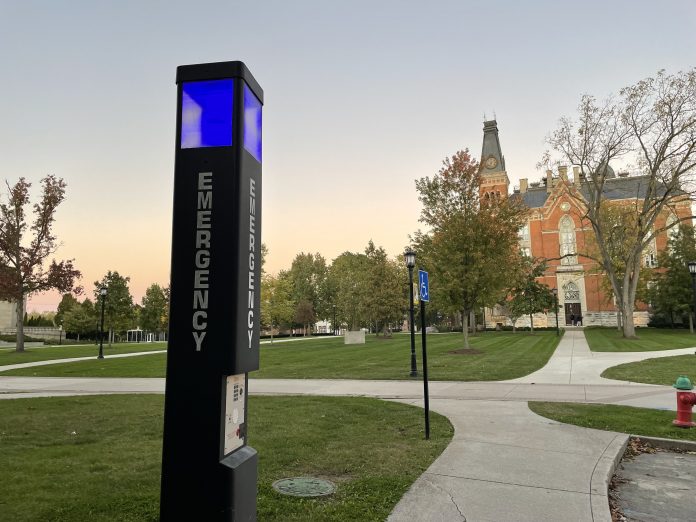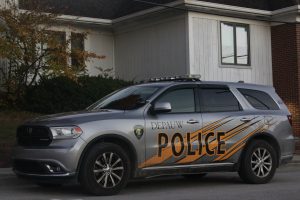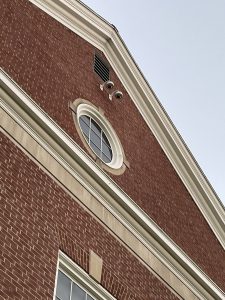
With Halloween weekend approaching, questions around policing and high risk drinking at DePauw are increasingly relevant, as first-years are now allowed on Greek property for events containing alcohol.
DePauw’s recently released 2021 Clery Report indicates dramatic decreases in drug and alcohol arrests and referrals over the last few years. But as students return to a mostly normal social life, whether or not policing and high risk drinking are actually decreasing remains a looming question.
While the Clery Report may reveal less arrests and judicial referrals over the past three years, it does not cover all Community Standards charges. All Community Standards data from the last two years are also available on DePauw’s website, complicating the Clery Report’s trends.

DePauw Police have the power of arrest and can be involved by DePauw’s Community Standards Board for relevant offenses, but not all drug and alcohol charges are processed through DePauw Police. Drug and alcohol charges reported by Housing and Residence Life staff, DePauw employees, and silent witness forms—as well as some cases from DePauw police and other law enforcement agencies—are processed through DePauw’s Community Standards.
Dorian Shager, assistant vice president for Student Affairs, is responsible for risk management on campus. Shager notes that recent Community Standards trends indicate lowering alcohol use and reveal rising drug use, but he has yet to see long term data.
“Is that because students are drinking less? Is it because we are receiving fewer reports? Are there less reports from DePauw Police or RA’s? We are looking into that,” Shager said.
Senior Kelsey Moisan attributes lowering arrest and referrals to lower numbers of students on campus due to COVID-19, not actual decreases in high risk activities.
“I do not think that there has been any waning in high risk drinking activities on this campus,” Moisan said.
Moisan also feels that DePauw policing has increased.
“I can remember freshman year not really worrying if there was a cop parked in the Gobin parking lot. And now, every night there is like in a group chat saying, ‘there is a public safety officer sitting in X, Y and Z parking lot on campus?’ … So it's just teaching students to be more sneaky and unsafe,” Moisan said.

A new risk policy that has been installed over the last four years is the security camera policy. Last year, students were concerned about how cameras were used during COVID-19 time. In response, DePauw created a new working group, including staff and students, to help design the new policy that would clarify the placement, usage, and accessibility of cameras. Shager emphasized that cameras were not used for surveillance, but rather in a reactive manner, to find evidence after an incident.
Still, some students feel the security cameras have been used more frequently post-COVID-19.
“I feel like DePauw Police is watching us more now than before COVID-19,” junior Nagisa Omi said.
First-year Quan Nguyen has not felt watched by DePauw Police. Generally, Nguyen feels he can count on DePauw Police for his safety.
“They are very responsible, given that they respond quickly when students contact them with problems of being locked out or having accidents,” Nguyen said.
While trends surrounding DePauw drug and alcohol violations and policing remain unclear, Shager hopes that students will be safe this weekend.
“I always encourage students to make safe and healthy decisions. Any time there’s a big weekend I encourage students to make a plan ahead of time, to know their limits. We want to support state and local laws, but most importantly we want to make sure that the students are making good, safe, healthy decisions,” he said.
